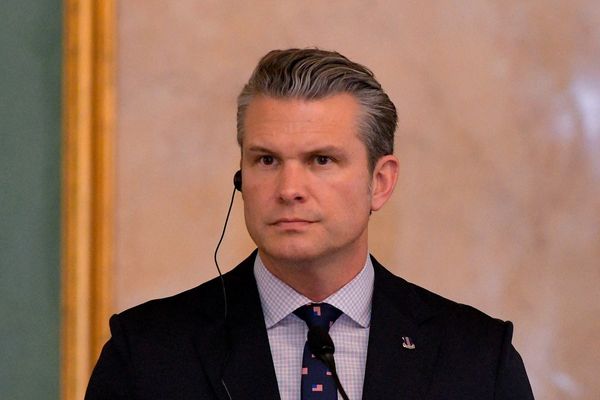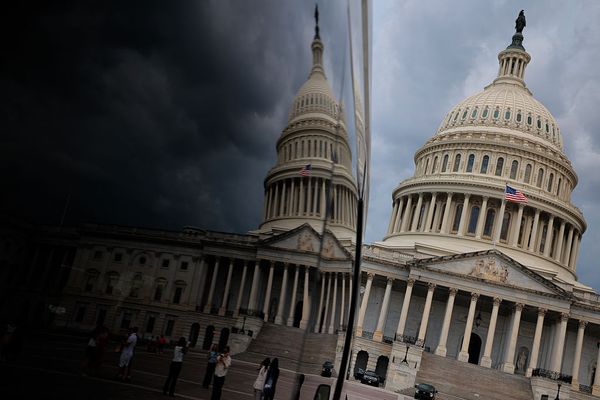
Britain’s cost of living crisis moved into its fourth month in February despite a jump in wages and a fall in unemployment to 3.8%, its lowest level since 1974.
The Office for National Statistics said average earnings growth of 5.4%, including bonuses, failed to keep pace with a 6.2% rise in the consumer prices index in February, while for those who missed out on a bonus the situation was even worse after average wages increased by only 4%.
Opposition MPs, anti-poverty campaign groups and the TUC said the government should increase the financial support on offer to households and businesses after a sharp rise in energy costs that pushed inflation to its highest level in 30 years.
The living standards of millions of families have fallen since prices began to rise in November after global energy shortages pushed the cost of gas to a record high.
The minister for employment, Mims Davies, said the fall in unemployment to the lowest point in almost 50 years showed the government’s efforts to increase levels of employment were working.
But she acknowledged it was “a difficult time for many workers and families”.
“We’re doing everything we can to help, with our Way to Work scheme, which is supporting people coming through the doors of our Jobcentres to move into better-paid, higher-skilled work, as well as increasing the national living and minimum wage, all backed up by over £22bn of targeted investment,” she said.
Labour’s Treasury spokesperson, Pat McFadden, said tax rises and cuts to universal credit had the effect of squeezing living standards harder than in any major European economy.
“At a time like this, Rishi Sunak could have chosen a one-off windfall tax on huge oil and gas company profits to cut household energy bills by up to £600,” he said. “Instead, he’s decided to make Britain the only major economy to land working people with higher taxes in the midst of a cost of living crisis.”
Public sector workers, who account for about a sixth of the workforce, faced the sharpest fall in public sector pay on record in February compared with the same month in 2021, as monthly figures showed the shortfall between wages growth and CPI had widened to 4.2%.
Nurses received one of the highest pay awards of 3% last year, while in many other areas of the public sector increases were limited to 1% or below to keep the average nudging 2%. The ONS said the situation across central government, local government and the many agencies and quangos covered by public pay awards contrasted with the finance and business services sector, which enjoyed the largest growth rate at 9.8%, partly the result of strong bonus payments.
The Resolution Foundation said the current fall in real wages was not projected to end until late 2023, and at that point average wages would be no higher than in 2007.
Nye Cominetti, the thinktank’s senior economist, said: “With the current inflation being driven by soaring energy bills, it will be lower-incomes families feeling the squeeze the most.”
The consultancy PwC said its modelling of wages and inflation showed inflation-adjusted earnings would be 2% lower at the end of the year, leaving the average UK household £900 worse off, “while the lowest earners could see their incomes fall by as much as £1,300”.
There was an improvement in Britain’s unemployment rate, which fell 0.2 percentage points to 3.8% in the three months to February, taking it further below its level immediately before the coronavirus pandemic, the ONS said.
However, analysts said that while there was strong demand for workers in many sectors of the economy, the reduction in the jobless numbers partly reflected a sharp decline of about 500,000 people looking for work, either because they had quit the labour market or were experiencing ill health.
Employment was up by 10,000 in December-February – but still much lower than its peak in February 2020. The ONS said the quarterly rise was driven by an increase in full-time employment that was offset by an almost equal decline in part-time work.
The number of job vacancies hit a record high of 1.288m, reflecting the shortages of staff in the health, finance, construction and leisure sectors.
Policymakers at the Bank of England, who are known to be concerned about the sharp jump in vacancies over the past year and rising wages, are widely expected to raise interest rates next month to reduce the demand for workers and dampen wage demands.
Darren Morgan, the director of economic statistics at the Office for National Statistics, said: “While unemployment has fallen again, we are still seeing rising numbers of people disengaging from the labour market, and as they aren’t working or looking for work, are not counted as unemployed.
“While strong bonuses continue to mitigate the effects of rising prices on people’s total earnings, basic pay is now falling noticeably in real terms.”







